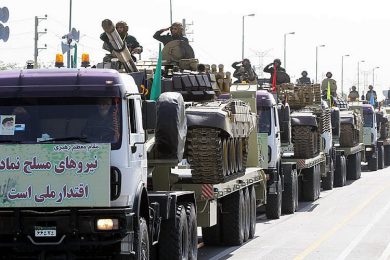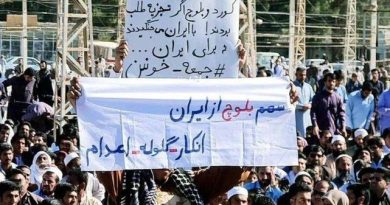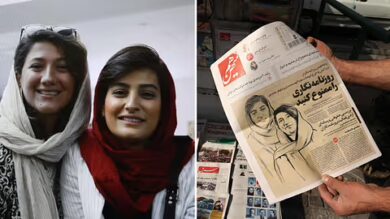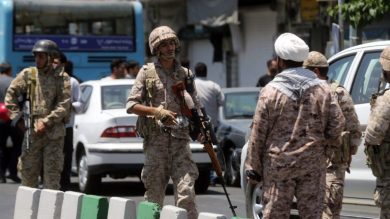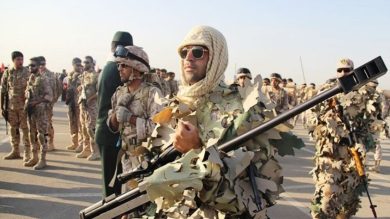Evin Prison, nestled in the hills of northern Tehran, is one of the most infamous detention centers in the Middle East. For decades, it has symbolized state repression in Iran—particularly against women who dare to defy authoritarian control. Run in large part by the Islamic Revolutionary Guard Corps (IRGC), Evin is more than a prison; it is a tool for silencing dissent, a site of human rights abuses, and a battlefield where Iranian women continue their fight for freedom, even behind bars.
This article delves into the stories of women political prisoners inside Evin, highlighting their courage, the conditions they face, the psychological and physical abuses endured, and the hope they still carry for a free and democratic Iran.
1. Evin Prison: A Fortress of Fear
A Legacy of Repression
Evin Prison was established in 1972 under the Shah’s regime but became far more notorious after the 1979 Islamic Revolution. What was once a center for holding political dissidents became a well-oiled machine of suppression under the Islamic Republic, especially through the oversight of the IRGC’s Intelligence Division.
Why Women Are Targeted
In recent decades, the number of women political prisoners in Evin has sharply risen. These women include:
• Journalists
• Human rights lawyers
• Environmental activists
• Feminist organizers
• University students
• Protesters and whistleblowers
They are arrested on vague or fabricated charges such as:
• “Propaganda against the state”
• “Threatening national security”
• “Insulting the Supreme Leader”
• “Violating hijab laws”
These accusations reflect systemic gender oppression, where any woman who asserts her autonomy or questions authority is deemed a threat.
2. Conditions Inside Evin: Harsh and Dehumanizing
Solitary Confinement and Interrogation
Many women are subjected to long periods of solitary confinement upon arrival, often in small, dark, windowless cells with no access to legal representation or family. Psychological pressure, false promises, and threats to their loved ones are common tactics used by IRGC interrogators.
Torture and Physical Abuse
Numerous reports and leaked testimonies have documented:
• Beatings
• Forced confessions
• Threats of rape
• Denial of medical care
• Sleep deprivation
Torture is not an exception in Evin—it’s policy. International organizations like Amnesty International and Human Rights Watch have repeatedly condemned Iran’s use of torture, particularly against women.
Lack of Medical Treatment
Inmates are frequently denied adequate health care. Women with chronic illnesses, including cancer or heart disease, are often left untreated. Some have died due to neglect.
Overcrowding and Unsanitary Conditions
The women’s ward is often overcrowded. Inmates report filthy restrooms, insect-infested sleeping quarters, and spoiled food. COVID-19 only worsened these conditions, with no access to sanitation or masks.
3. Voices from Inside: Testimonies of Courage
Narges Mohammadi
A renowned human rights activist and 2023 Nobel Peace Prize laureate, Mohammadi has spent over a decade in and out of Evin for her peaceful activism. She has detailed, through smuggled letters, the brutal conditions within the prison and has continued her advocacy even from solitary confinement.
“They may confine our bodies, but they will never imprison our voices.” – Narges Mohammadi
Nasrin Sotoudeh
A human rights lawyer imprisoned for defending women who protested hijab laws, Nasrin has been subjected to cruel punishment including long solitary confinement and hunger strikes. Even from prison, she continues to speak through letters and open statements smuggled to the outside world.
Sepideh Gholian
A journalist and labor rights activist, Gholian has been repeatedly imprisoned and tortured in Evin.
After her release in early 2023, she returned to Evin’s gates to shout slogans against the regime—only to be immediately re-arrested.
Atena Daemi
Arrested for opposing the death penalty, Daemi has faced repeated abuse in Evin, including being held with violent criminals and subjected to beatings. Yet she continues to resist and document the injustices she and others face.
4. Resistance Behind Bars
Underground Networks of Strength
Despite IRGC control and surveillance, women have formed networks of solidarity within Evin. They share food, write letters of protest, educate each other on legal rights, and send messages to the outside world through their families and lawyers.
Education and Defiance
Many political prisoners spend their time studying, teaching, and even producing poetry, essays, and open letters. These writings often find their way into the global discourse on Iran’s political and human rights crisis.
5. The Role of the IRGC
How the IRGC Controls Evin
The IRGC’s Intelligence Organization manages many aspects of life in Evin, including:
• Surveillance of inmates
• Assignment of interrogators
• Coordination of propaganda efforts
• Enforcing prison policies that isolate or silence specific prisoners
They are responsible not only for the arrests and detentions, but also the psychological warfare waged within the prison walls.
Targeting Families
The IRGC has also harassed and threatened the families of women prisoners. In some cases, family members are detained themselves to pressure the women into confessions or silence.
6. International Reaction: Not Enough
While global human rights organizations have condemned Iran’s treatment of women prisoners, international pressure remains insufficient. Western governments, particularly in Europe, have been criticized for prioritizing diplomacy and nuclear negotiations over human rights.
Missed Opportunities
• The EU has yet to designate the IRGC as a terrorist organization.
• Many IRGC officials involved in abuses continue to travel freely abroad.
• There is little legal recourse for survivors of torture to seek justice.
7. What Can Be Done: Global Solidarity and Action
1. Designate the IRGC as a Terrorist Organization
More countries must follow the U.S. in designating the IRGC as a terrorist group for its role in human rights violations.
2. Demand Prisoner Releases
Governments and UN bodies should demand the immediate release of all women political prisoners, and ensure their stories are part of global human rights conversations.
3. Support Families and Survivors
NGOs and civil society can support the families of prisoners with legal aid, financial assistance, and mental health support.
4. Pressure for UN Investigations
Global campaigns must call for independent UN investigations into prison conditions and torture in Iran, focusing on the role of the IRGC.
5. Amplify Their Voices
Continue to share stories of women political prisoners across all media platforms to ensure their resistance is not hidden or forgotten.
Conclusion: They Tried to Bury Us, But We Are the Seeds
The women imprisoned in Evin are more than victims—they are leaders of a revolution. Despite facing some of the worst conditions imaginable, they embody Iran’s resistance and hope.
Join Our Newsletter!
Stay informed with the latest updates, news, and ways to take action in the fight for justice and global security. Sign up now to get updates delivered straight to your inbox!

